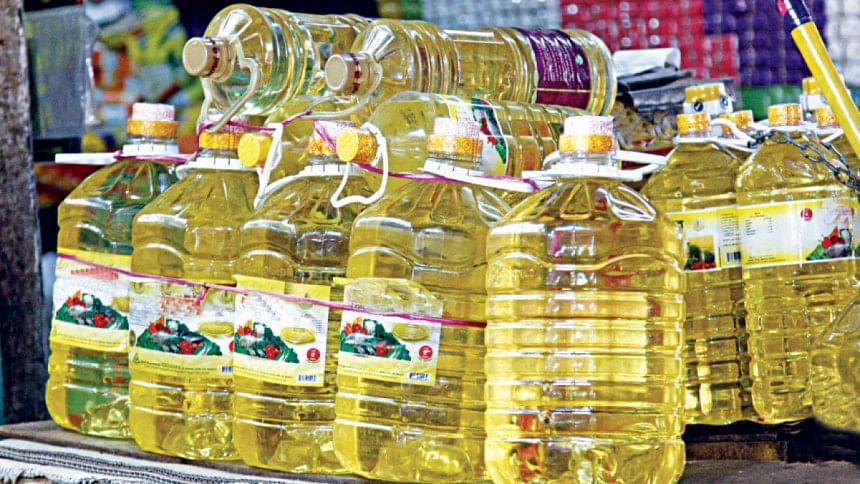Out of reach, out of control

It's alarming that amid skyrocketing prices of daily essentials, yet another problem—a crisis of edible oil, particularly soybean oil—has now emerged, with retailers and wholesalers allegedly stocking it up to create an artificial crisis, and refiners slowing down delivery. According to a report by this daily, many consumers are returning empty-handed from local stores and kitchen markets. In the absence of effective monitoring, both retail and wholesale stores are exploiting the situation by either citing a lack of oil supply or selling them at exorbitant prices. As a result, not only are government-fixed prices being ignored, but low-income customers are being disproportionately affected as well.
The timing of this couldn't be worse, as consumers are being drowned under unusually high prices for almost all essential commodities. It was only the other day that we commented on the morbid scenes of people, many from the so-called middle-income backgrounds, running after state-run TCB trucks or jostling for position in front of them to buy commodities at lower prices. The edible oil crisis, we're told, has reached a point that the poor, frustrated by high prices, are going for loose (unbottled) oil in small quantities, but that too is becoming scarce. On Saturday, loose soybean oil was barely available in Dhaka's kitchen markets, while the price of a five-litre bottle was as high as Tk 830, although the government-fixed rate is Tk 795.
Bangladesh has to depend on the international market to meet 90 percent of its edible oil demand, making the role of importers and refiners hugely important. Insiders say the present crisis is the result of a stocking tendency within the supply chain after the refiners demanded that the commerce ministry increase the price of edible oil to Tk 180 per litre from March 1—up by Tk 12 from the government-fixed price. Some have cited high import costs and duties as well as supply concerns in the middle of the Russia-Ukraine war. The government didn't entertain their demand for hikes, according to the commerce minister, and as a result an unscrupulous group is manipulating the market.
The government plans to ban the sales of loose soybean oil after May 31, and palm oil after December 31 this year. This is a good move and should have been done earlier, as loose edible oil can not only be a tool of manipulation, but is often adulterated, causing various health complications. But it is nowhere near enough. The government must initiate stronger interventions to check irregularities and make edible oil available within the reach of ordinary customers. It must ensure fair price adjustment in light of international prices, and punish errant traders and importers who try to exploit the situation as well as its lax oversight of kitchen markets.

 For all latest news, follow The Daily Star's Google News channel.
For all latest news, follow The Daily Star's Google News channel. 



Comments